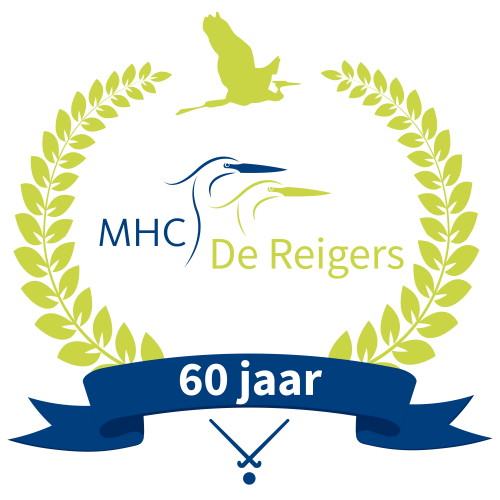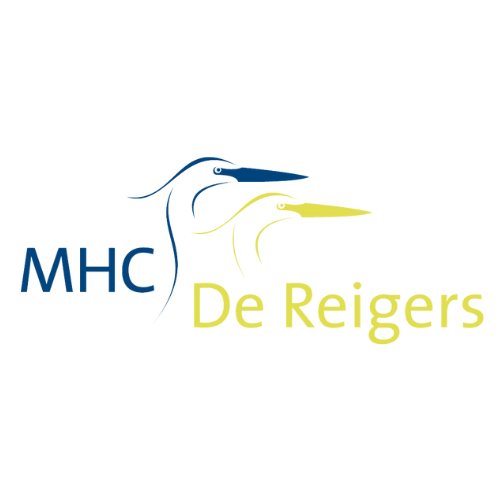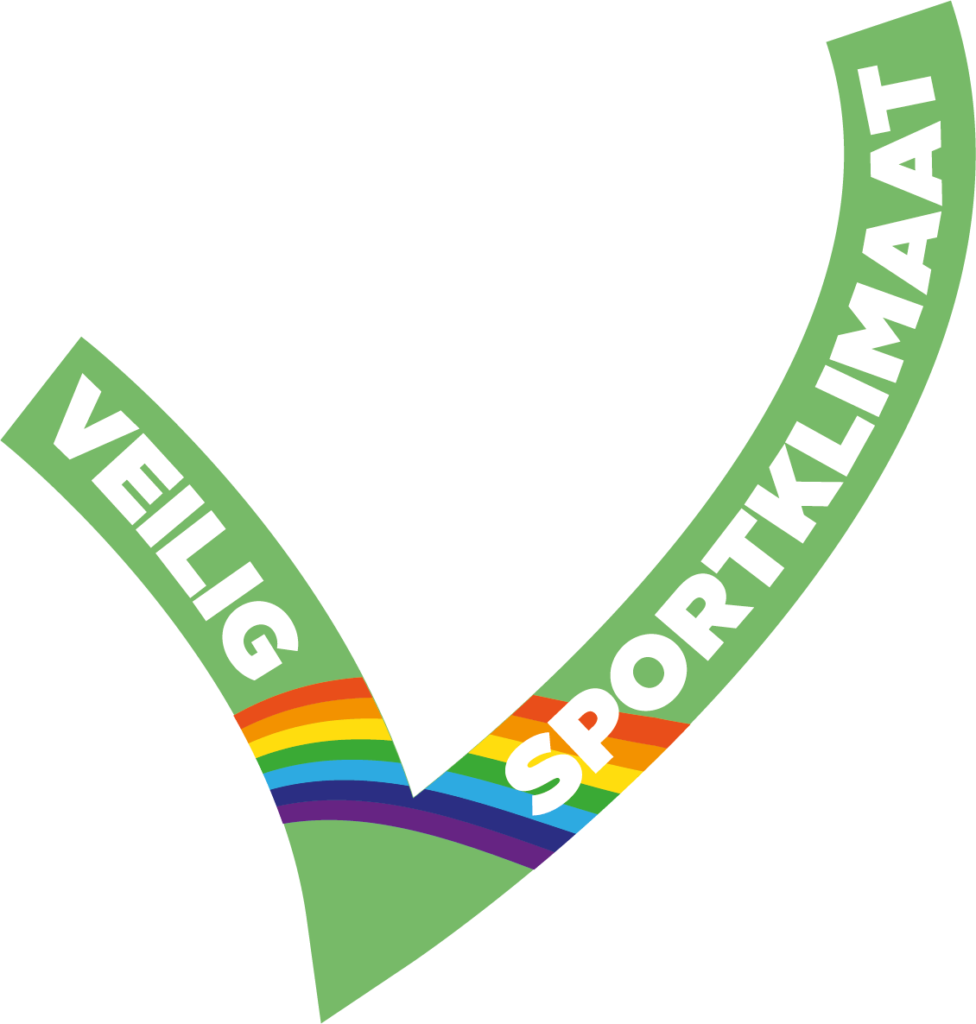The youngest youth players are the youngest players in the club (ages 5-10). This is where many children and parents first encounter hockey and our club. The goal is to get children excited about hockey in a socially safe environment and to create long-term relationships with our club, along with their parents.
In the Early Years program, children learn through play what a team sport is, but they also learn the basic principles of hockey, both technically and tactically. Early Years Hockey should be seen as a period of play and learning, with a focus on individual development. It's the foundation for team hockey. Winning or losing is of secondary importance.
Youngest youth categories
Funkey Hockey
From 5 years old
Funkey hockey is a form of hockey that teaches the fundamentals of hockey through knotshockey and other games. The focus is on enjoying the movement.
Equipment such as clubs, colored sticks, hoops, rings, and soft balls are used. Shin guards and a mouthguard are therefore not yet required at Funkey Hockey.
Children receive one hour of training per week (on Wednesday afternoons) from 3:00 PM to 4:00 PM.
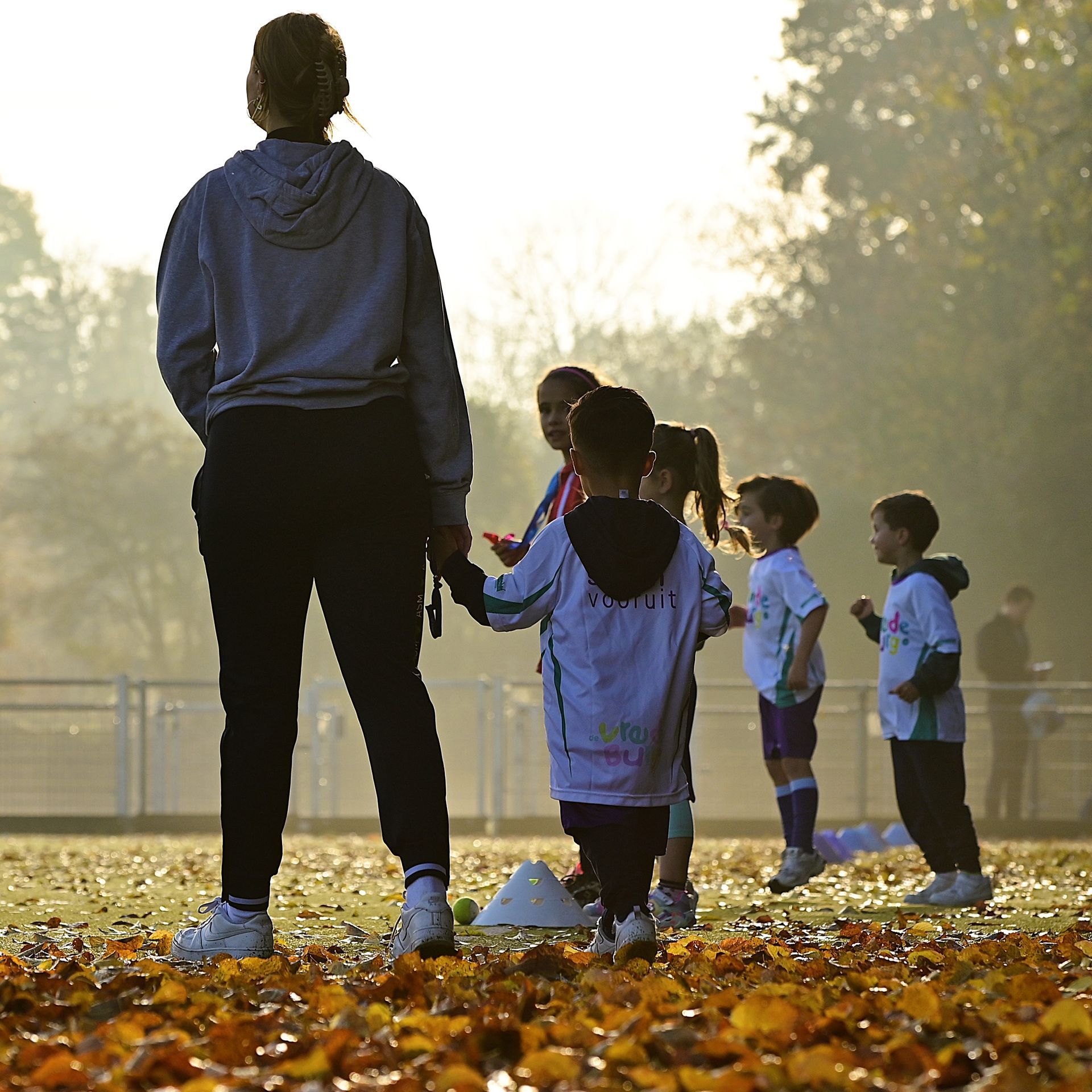
Benjamins
6 years old on September 30 of the current season
With the Benjamins, you'll be playing real hockey for the first time. This means that a mouthguard, shin guards, and your own hockey stick are required from this age. During the first half of the season, training sessions are held twice a week for one hour: on Wednesday afternoons and Saturday mornings. During the winter break, training sessions are held indoors once a week on Wednesday afternoons.
After the winter break, the U7 league will begin. While not mandatory, it's a great way to teach children how to play in a team and the basic rules of hockey. It's also a fun new challenge, and with the shared lemonade after the game (including with the opponent), it also fosters the social aspect of a team sport. The U7 league consists of practice matches against clubs in the North Holland region. A 3-on-3 game is played simultaneously on two small pitches, with three goals on each side. There is no goalkeeper yet. These matches last two 15-minute halves and replace Saturday morning training. A team should ideally consist of about 8-10 children, ensuring there are enough players on the pitch and one or two substitutes.
F-youth (3 against 3)
On September 30th of the current season 7 years
During the field season, the F-team trains twice a week for one hour, every Wednesday and Friday. On Saturdays, there are competition matches against clubs in the North Holland region, according to the three-game rules. For teams of three, a team consists of at least six players, from which two teams can be formed, playing simultaneously alongside each other. Each match includes a maximum of three field players and any substitutes. There is no goalkeeper.
Lasts 2 x 15 minutes and is played on a 1/8th of a pitch. Club uniform is now required.
is based on social grounds.
During the winter break, there are five indoor training sessions. The F-youth team also participates in the midwinter training.
Field competition. This consists of approximately six matches in January and February against clubs in the region.
North Holland.
Under 8
These are children aged 7/8 years (group 4 primary school).
A team consists of 8 players who during
playing a match simultaneously in two groups of three on an eighth field with multiple goals per team.
Under 9
These are children aged 8/9 years (group 5 primary school).
A team consists of 8 players, who play in groups of 6 during a match. Play takes place on a quarter of the field, with each team having a goalkeeper wearing goalkeeper gear (all players take turns).
Under 10
These are children aged 9/10 years (group 6 of primary school).
A team consists of 10 players, who play in groups of eight during a match. Play takes place on half a field, with each team having a goalkeeper wearing goalkeeper gear (all players take turns). The Under-10 teams also have the opportunity to participate in indoor hockey training and competitions during the winter.
More information about the youngest youth can be found on the KNHB website
Training
The youngest youth teams train twice a week under the supervision of a head coach and several assistant coaches. Hockey training generally takes place unless the field is unplayable due to heavy rain, hail, snow, or frost. Training is also cancelled during thunderstorms, as this is dangerous. There is often no training during the holidays.
A coach teaches you how to play hockey better and is always there. So it's only logical that all players attend training. Make sure you're on time, always give your best, and listen carefully. If you can't make it, please inform the coach, manager, or line coordinator.
Play competitively
After at least six months of training, matches can be played. This is always done in consultation with the trainer, line coordinator, and coach. It's important that you can handle the stick, ball, and teammates safely before you can participate in competitive matches. Once the trainer confirms that you have acquired sufficient skills, the line coordinator will be notified that you can participate in the matches. Your team's coach and manager will be notified and will then contact you.
The hockey season for the youngest youth is divided into three separate competitions of several matches: the Preliminary Competition (Summer to Fall Break), the Autumn Competition (Fall to Christmas Break), and the Spring Competition (February Break until the end of the season). After each competition, a re-draft takes place. The hockey season concludes annually with the Youngest Youth Final Day in early June. Each category then hosts a tournament at a club in the North Holland district, of which MHC De Reigers is a member.
matters.
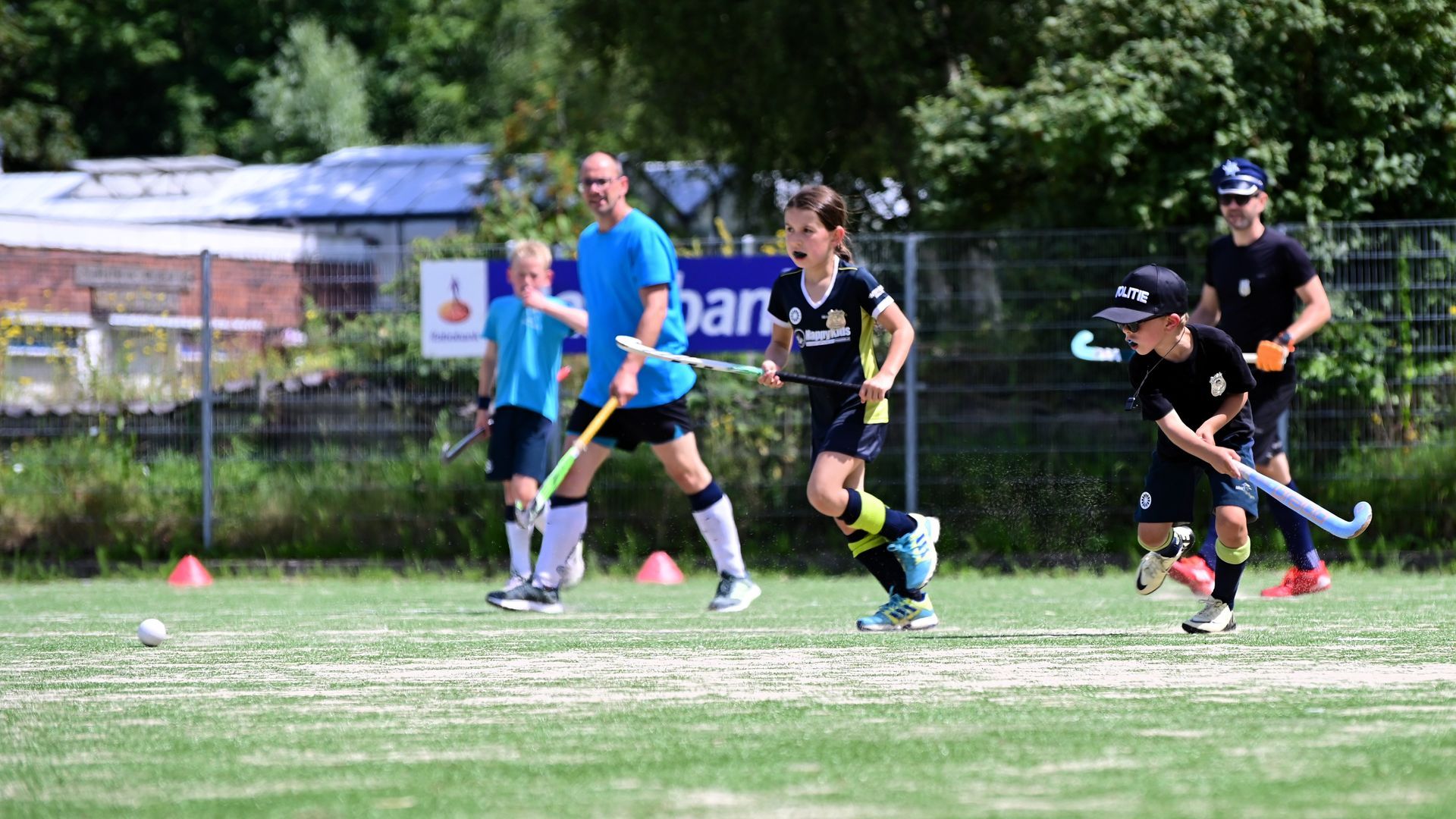
Role of parents/guardians
At MHC De Reigers, we highly value sportsmanship. We are all representatives of our club, and we believe it's important to conduct ourselves respectfully and sportingly. Parents and other supporters therefore do not interfere with training or games, stand behind the fences outside the field, and never make negative comments about referees, coaches, or the game being played. Enthusiastic encouragement is always a good thing. Afterward, feedback can always be given to the trainers, coaches, or committee members in a calm environment. Our club can only function with the strong commitment of parents. This can be done in various ways, for example, by contributing as a coach or (assistant) coach, team manager, referee, committee member, or by helping organize activities. In addition, there are several tasks that must be completed as a team. These include setting up or clearing the fields (the so-called Yellow Jackets service) and providing bar staff on match days. The team will be informed of these tasks in a timely manner.
via the coach/team manager.
Hockey equipment
In addition to the membership fee (including registration with the KNHB), there is a cost for hockey equipment. Essential for training and matches are a stick, shin guards, mouthguard, training kit, artificial turf shoes, and the club uniform (shirt, shorts/skirt, and socks). When purchasing a hockey stick, it's important that it's not too long (from armpit to knee is the correct length). A good length stick will help you adopt the correct hockey stance and make playing hockey much easier. You can purchase the club uniform at Intersport in Hoofddorp once you start playing competitive matches.
Line Committee Youngest Youth
The (technical) policy and core values (fun, safe, educational) of the youngest youth are promoted by the youngest youth line committee. A line coordinator has been appointed for each category to manage communication between the club, coaches, and parents. The youngest youth line committee, together with the head coaches, also manages team compositions and oversees pool divisions.
The line coordinators can be reached at the following email addresses:
| Coordinator | |
|---|---|
| Line coordinator JO10 | [email protected] |
| Line coordinator JO9 | [email protected] |
| Lijncoördinator JO8 | [email protected] |
| Line coordinator MO10 | [email protected] |
| Line Coordinator MO9 | [email protected] |
| Lijncoördinator MO8 | [email protected] |
| Lijncoördinator Benjamins | [email protected] |
| Lijncoördinator Funkey | [email protected] |


